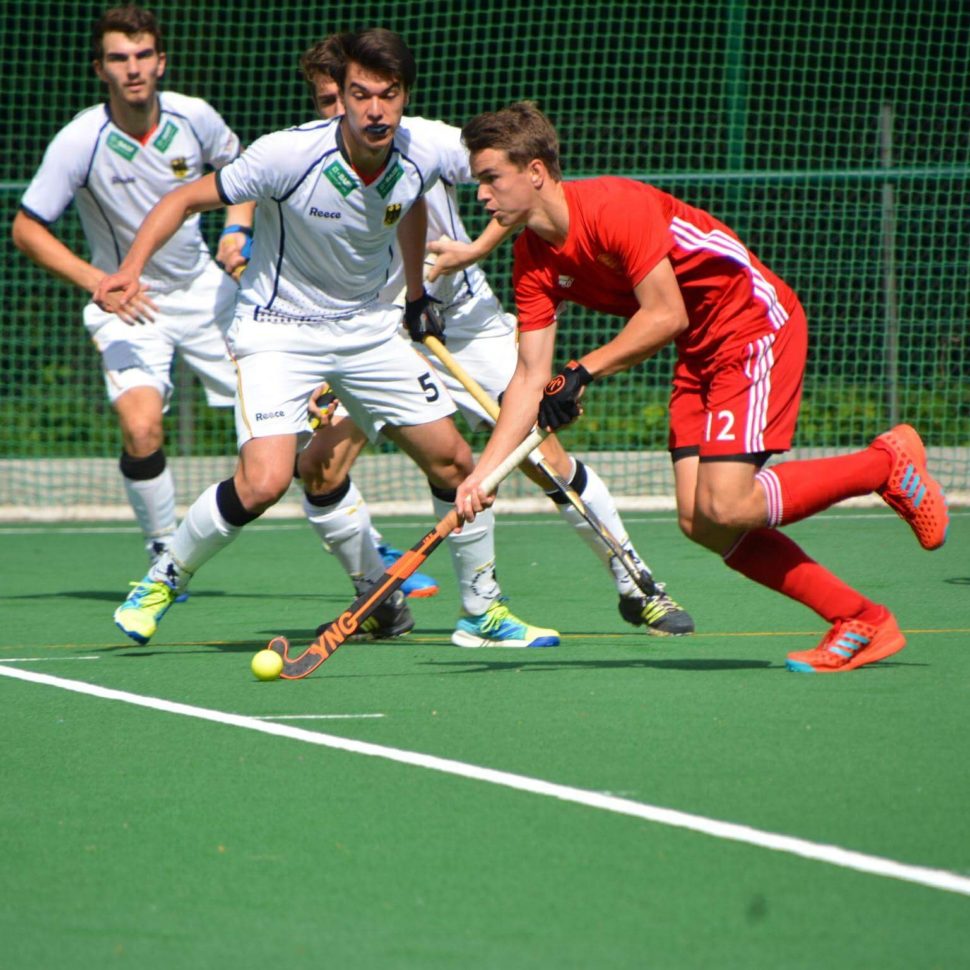Peter Scott – Life in Hockey

We spoke with Peter Scott, a young and talented England International Hockey player who made his international debut in March 2017 against Germany. Having played hockey since he was 5 years old, Peter now represents Team Bath Buccaneers, Bath University and is contracted to England. With all of this and a degree to juggle, Peter has a very unique view on the amount of support provided from grassroots to elite international levels.
Congratulations on reaching the national indoors final with Team Bath Buccaneers. Losing such a narrow final to 12 times champions East Grinstead must have been difficult but was a great achievement to push them so close. What do you need to do next year to lift the trophy?
Yes it was an incredible achievement for us, it was the first time in the club’s history that we have even made the finals weekend so to make it to the final was pretty special. We were certainly the underdogs going into the finals but I think we more than proved ourselves to be a quality indoor team able to compete with any of the top teams. Regarding next season, the team just needs to maintain the solid structure that made other teams struggle against us this year while adding slightly more quality with our finishing going forward and well put ourselves in a solid position to challenge for the top spots again.
Where does reaching the final rank amongst your sporting achievements?
It is definitely up there as one of my highlights so far. The atmosphere in the Copper Box made it a great event to be a part of and celebrating winning our semi-final on shuffles was a great feeling.
What was the highlight of your school sporting career?
I think the highlight of my school sporting career was playing in the Sainsbury School Games in 2014. It was good to have a taste of what an event like that is like and I feel like I learned a lot from that tournament that I have taken forward into future tournaments.
When you were at school who did you look up to the most, who inspired you?
Barry Middleton was always someone who I looked up to. His work ethic was always something that was talked about by other coaches and watching him perform so consistently at international level was always something to aspire to. Harry Martin is also someone who inspired me whilst I was at school. His selection for the Olympic Games at such an early age was something that inspired me to focus on hockey and work hard to be in the position I am in now.
Did you face many challenges juggling international hockey whilst doing a degree?
Yes it has been quite tough to get the right balance between hockey and university over the past couple of years, although I have been lucky to have quite a lot of help from both the university and GB hockey who understand the commitments I do have and quite often provide alternative options for me.
Why do you think sport is important for young people?
Sport provides so many opportunities and chances to learn not just the sports themselves but also vital transferrable skills that can be used in everyday life. Things like team work and communication are two things I have significantly improved over the past few years and they have given me more confidence in not just my sporting life but my social life as well. Especially for young people who are constantly learning, I think sport provides a great platform to grow these skills.
Have you ever been out of play due to injury, and if so how did you find the experience of being injured?
Fortunately I have not.
Have you noticed many differences from the management of injuries at club hockey level to international level?
Yes, the management of players is significantly stricter at international level. With the support staff around the GB group, any injury is managed straight away with physios and doctors always on hand if needed at training sessions and competitions. When a player is injured they are in the gym every day rehabbing and doing what they can to get back to fitness before a steady inclusion back into the hockey sessions (depending on the injury).
Concussion is a huge talking point at the moment, and many are being put off playing high risk concussion sports. Do you think the awareness of the injury is high enough in Hockey?
I think the awareness of injury, especially serious injuries such as concussion is high in hockey. For example, short corners (arguably the most dangerous aspect of hockey) have been analysed significantly and therefore the protection worn by the players during these instances has increased over the past few years. I also think that the awareness of injury from general play has increased over the past few years and the ‘protection of the players’ is often something that is talked about when decisions are made on the pitch by the umpires.
Are you surprised to learn that Return2Play’s data shows Hockey to be one of top three highest risk sports for concussions?
I am not surprised about this due to the nature of the game but I don’t think it is something you can easily escape, especially in open play, as the sport is just so unpredictable, particularly at lower levels of the game.
Finally, if you could tell your younger self anything what would it be?
Make sure to keep working hard ‘behind the scenes’, that’s where the marginal gains are made that can have a massive impact on where you will be in the future.
